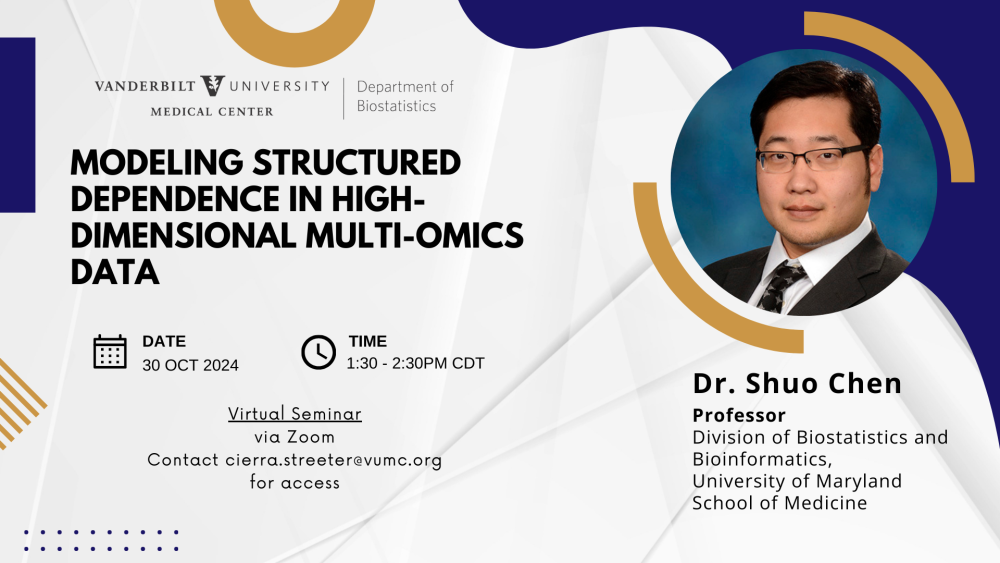
Abstract
Estimating the complex dependence structure is central to multimodal high-dimensional biomedical data analysis. I first introduce a prevalent covariance pattern, the interconnected community structure, in various high-dimensional biomedical datasets, including genomics, proteomics, microbiome, and neuroimaging, among others. I demonstrate a new shrinkage technique to identify this structure. Under this covariance structure, intercorrelated high-dimensional biomedical features often form communities or modules that can be interconnected with others. I derive the uniformly minimum variance unbiased estimators for covariance and precision matrices in closed forms. Built on the estimated large covariance matrix, I further develop multivariate regression models to account for the dependence patterns and a semi-confirmatory factor analysis model for dimension reduction. Next, I introduce the shrinkage-based technique to identify structured interaction patterns between two types of high-dimensional datasets. Both simulation studies and real data applications (e.g., metabolomics, gene expression, and multi-modal neuroimaging data) demonstrate the superior performance of our approaches.
Sign up to meet with Dr. Chen after the presentation here.
Shuo Chen is a tenured professor at Division of Biostatistics and Bioinformatics, University of Maryland School of Medicine, and the Applied Mathematics & Statistics, and Scientific Computation (AMSC) program, University of Maryland College Park. Dr. Chen received his PhD in biostatistics from Emory University working with Dr. F. DuBois Bowman in 2012. Dr. Chen's primary research interest has been focused on developing statistical methods for brain connectome data, jointly modeling multi-modal neuroimaging data, imaging-genetics data, and imaging-multi-omics data. Dr. Chen is currently directing a research group consisting of two postdoctoral fellows, five PhD students, and two analysts.